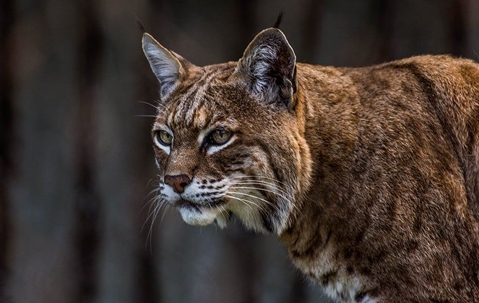Bobcats

Bobcats are thriving in urban areas throughout North America such as Houston, Dallas/Fort Worth, TX and surrounding areas because they find more food (rats, squirrels and cottontail rabbits) in residential neighborhoods than in rural areas.
Urban bobcats frequently den under decks and sheds. If you suspect you have a bobcat on your residential property, Contact 911 Wildlife now to schedule a wildlife specialist to conduct a professional inspection today.
Relocating Bobcats Is Neither Humane Nor Effective
Contrary to what many people think, relocating bobcats is neither a humane nor an effective way to solve bobcat problems. Trappers frequently charge high fees to trap and relocate bobcats living in urban areas. These animals often are lactating females. Days after the captured animal has been transported and released far away, homeowners may hear the cries of hungry orphans or smell the odor of dead animals.
Even in cases where the animal isn’t a lactating female, relocating bobcats usually results in suffering and death. Relocated bobcats rarely survive more than two weeks in an unfamiliar territory. They’re unable to successfully compete for food and shelter with the existing population of wildlife in that area. Disoriented and seen as an invader, the relocated bobcat usually dies of starvation or from injuries inflicted by other wildlife. Also, many relocated bobcats get hit by cars while crossing unfamiliar roads in an attempt to return home.
In addition to being inhumane, relocating bobcats also is ineffective. Nature hates a vacuum. If one bobcat is removed, another from the surrounding area soon takes its place. Even in urban areas, there is an unlimited supply of bobcats searching for unoccupied territory.
Simple, Affordable Solution
Instead of relocating bobcats, the most effective way to solve a bobcat problem is to identify the concentrated food source and/or den site attracting the animal to the property. Small animals are the primary food source for bobcats. Many bobcat problems can be solved simply by eliminating access to bird seed, pet food, compost and other food sources that attract rats and mice. Den sites such as openings under a deck or shed should be secured with heavy gauge welded wire mesh, after the bobcat has been humanely evicted.
Contact 911 Wildlife today for expert advice on ways to quickly and permanently solve bobcat problems.


